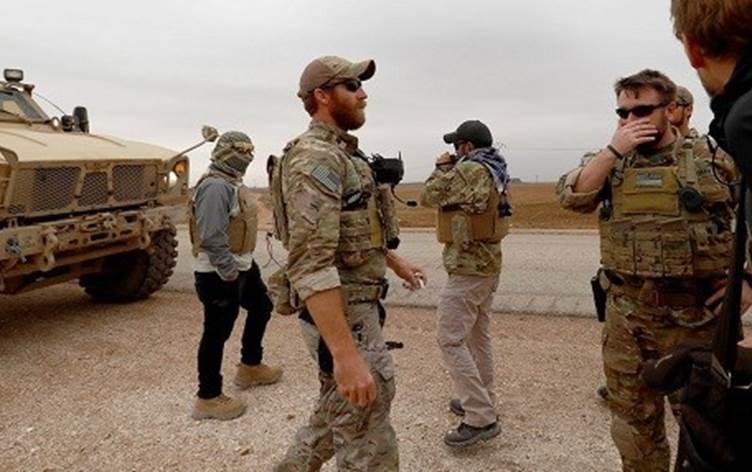ERBIL, Kurdistan Region – The United States is setting up observation posts on the northern Syria border with Turkey to deter any aggression against Turkey, US Defense Secretary James Mattis announced on Wednesday.
“Turkey, a NATO ally, has legitimate concerns about terrorist threats and from where they’re emanating,” he said in a press briefing at the Pentagon. “We don’t dismiss any of their concerns.”
Turkey considers the Kurdish groups in northern Syria, the political party PYD and armed forces YPG, YPJ, and SDF, to be branches of the PKK and has threatened military action against them numerous times.
Ankara has accused the Kurdish forces of firing across the border into Turkey. The Kurdish forces deny the charge.
The US has been playing peacekeeper between their NATO ally Turkey and the Kurdish forces who they are fighting alongside in the war against ISIS.
These observation posts are the latest effort to prevent conflict. They will be manned by forces already present in northern Syria and will provide intelligence to Turkey of any possible “terrorist elements” moving across the border, Mattis explained.
The decision was made after consultation between Washington and Ankara, he added.
American and Turkish forces are conducting joint patrols in the Manbij area in order to allay Turkey’s security concerns.
US forces are also patrolling along the border of Rojava – the Kurdish self-autonomous region in northern Syria – with Turkey after Turkish forces fired at Kurdish villages.
American soldiers in the patrols, in rare comments to media, said on Sunday they were there to assess what is happening in order develop a strategy to resolve the situation.
One soldier, who declined to be named, said the way forward is “political. There’s no amount of patrols or effort on our part that are going to solve the problem.”
“Turkey, a NATO ally, has legitimate concerns about terrorist threats and from where they’re emanating,” he said in a press briefing at the Pentagon. “We don’t dismiss any of their concerns.”
Turkey considers the Kurdish groups in northern Syria, the political party PYD and armed forces YPG, YPJ, and SDF, to be branches of the PKK and has threatened military action against them numerous times.
Ankara has accused the Kurdish forces of firing across the border into Turkey. The Kurdish forces deny the charge.
The US has been playing peacekeeper between their NATO ally Turkey and the Kurdish forces who they are fighting alongside in the war against ISIS.
These observation posts are the latest effort to prevent conflict. They will be manned by forces already present in northern Syria and will provide intelligence to Turkey of any possible “terrorist elements” moving across the border, Mattis explained.
The decision was made after consultation between Washington and Ankara, he added.
American and Turkish forces are conducting joint patrols in the Manbij area in order to allay Turkey’s security concerns.
US forces are also patrolling along the border of Rojava – the Kurdish self-autonomous region in northern Syria – with Turkey after Turkish forces fired at Kurdish villages.
American soldiers in the patrols, in rare comments to media, said on Sunday they were there to assess what is happening in order develop a strategy to resolve the situation.
One soldier, who declined to be named, said the way forward is “political. There’s no amount of patrols or effort on our part that are going to solve the problem.”



Comments
Rudaw moderates all comments submitted on our website. We welcome comments which are relevant to the article and encourage further discussion about the issues that matter to you. We also welcome constructive criticism about Rudaw.
To be approved for publication, however, your comments must meet our community guidelines.
We will not tolerate the following: profanity, threats, personal attacks, vulgarity, abuse (such as sexism, racism, homophobia or xenophobia), or commercial or personal promotion.
Comments that do not meet our guidelines will be rejected. Comments are not edited – they are either approved or rejected.
Post a comment